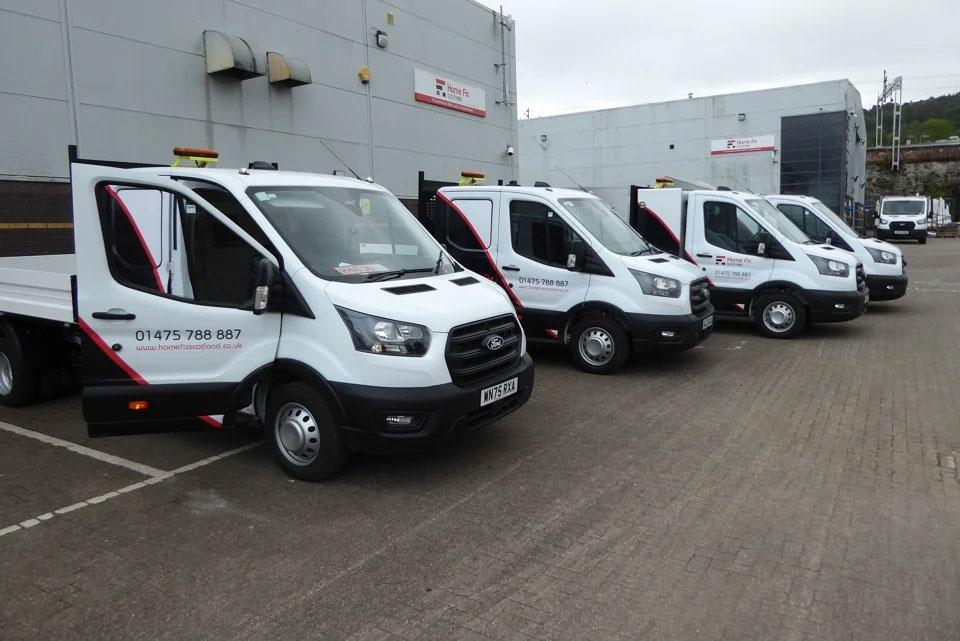New research from Enterprise Rent-A-Car shows that more than half of grey fleet drivers (54%) say they don’t conduct basic safety checks before a long trip of a hundred miles or more, while around one in five (19%) say they currently have a warning light showing and don’t plan to have it checked.
Enterprise warns that this could result in significantly increased risk and cost for organisations. The pandemic has led to many more employees using their own car for business, as well as more journeys being classed as a business trip as the home becomes the new main place of work. Employers are legally responsible for the condition and roadworthiness of any car used for work, even if it is owned by the employee.
Many of these drivers also admit that they fail to carry out basic regular maintenance and safety checks on the personal vehicle they use for unmanaged business travel.
These safety lapses include not checking the tyre tread (32%) or tyre pressure (27%), oil levels (30%), or if the headlights (32%) or the brake lights are working (35%). In fact, more than one in four (28%) grey fleet drivers surveyed admit they have never even opened the bonnet.
As a result, many (32%) admit that they have been late to a business meeting – or even missed one entirely – because their vehicle had a problem and needed to be repaired.
The survey of 1,000 UK drivers, 44% of whom use their own cars for business journeys, also revealed that more than half of grey fleet drivers (57%) chose to defer their MOT due to Covid-19 and 6% said their vehicle only gets checked at the annual MOT or service. The average age of vehicles in the survey was four years nine months, indicating that a high proportion of those cars currently require an MOT.
Enterprise is advising businesses of all sizes to review their employee travel plans to address grey fleet safety issues more specifically and to put systems in place to monitor work journeys and the vehicles being used.
Its Enterprise Travel Direct (ETD) platform has been specifically designed to enforce the employee travel policy, check that grey fleet vehicles are suitable for business journeys and provide an alternative vehicle if an issue is identified.
Paul McCorkell, assistant vice president of business mobility for the UK and Ireland at Enterprise, comments: “The grey fleet is shaping into a bigger challenge for employers than perhaps it’s ever been before. With more people working from home, and data showing that used car demand and prices are both heading upwards post-lockdown, many employees may now plan to buy a second-hand car and use it for business travel.
“Failure to carry out basic safety checks on those vehicles can mean missed meetings – or it could lead to a road accident where the employer may be liable. That’s why more organisations should be looking into providing alternative transport options, such as rental and car clubs, where they can be certain every vehicle is always properly maintained and fit for purpose.
“At the very least, employers should have a means in place to track how employees use their own cars for work trips, and a way for drivers to confirm that they’ve checked their vehicle and it’s suitable for the road. That way they can get a sense of the scale of the problem and offer employees a solution even though they have so many other priorities right now.”
It is estimated that before Covid-19, there were as many as 14 million grey fleet vehicles on UK roads and that employers spend around £5.5 billion a year on the ‘grey fleet’.
Research by the Energy Saving Trust has shown that 12 billion miles are driven each year in grey fleet vehicles, emitting 3.5 million tonnes of CO2.
In order to ensure hygiene and safety, Enterprise introduced its Complete Clean Pledge this year to further enhance how all its vehicles are thoroughly cleaned between each rental. This includes washing, vacuuming, general wipe down, and sanitising with a disinfectant that meets leading health authority requirements, with particular attention to more than 20 high-touch points.
More than half of grey fleet drivers skip basic safety checks







